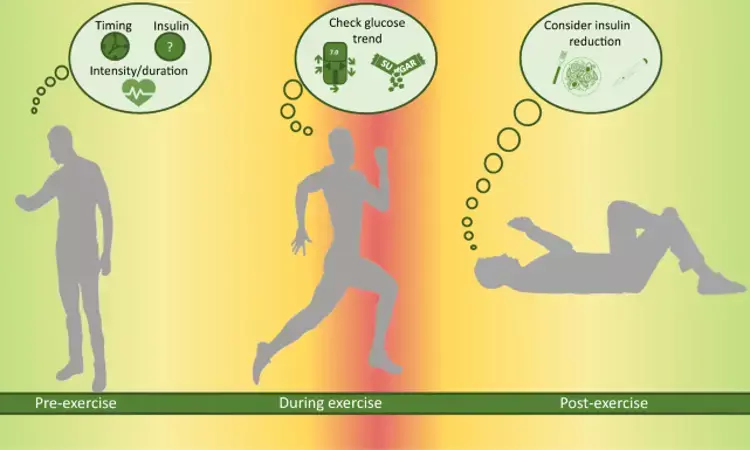- Home
- Medical news & Guidelines
- Anesthesiology
- Cardiology and CTVS
- Critical Care
- Dentistry
- Dermatology
- Diabetes and Endocrinology
- ENT
- Gastroenterology
- Medicine
- Nephrology
- Neurology
- Obstretics-Gynaecology
- Oncology
- Ophthalmology
- Orthopaedics
- Pediatrics-Neonatology
- Psychiatry
- Pulmonology
- Radiology
- Surgery
- Urology
- Laboratory Medicine
- Diet
- Nursing
- Paramedical
- Physiotherapy
- Health news
- Fact Check
- Bone Health Fact Check
- Brain Health Fact Check
- Cancer Related Fact Check
- Child Care Fact Check
- Dental and oral health fact check
- Diabetes and metabolic health fact check
- Diet and Nutrition Fact Check
- Eye and ENT Care Fact Check
- Fitness fact check
- Gut health fact check
- Heart health fact check
- Kidney health fact check
- Medical education fact check
- Men's health fact check
- Respiratory fact check
- Skin and hair care fact check
- Vaccine and Immunization fact check
- Women's health fact check
- AYUSH
- State News
- Andaman and Nicobar Islands
- Andhra Pradesh
- Arunachal Pradesh
- Assam
- Bihar
- Chandigarh
- Chattisgarh
- Dadra and Nagar Haveli
- Daman and Diu
- Delhi
- Goa
- Gujarat
- Haryana
- Himachal Pradesh
- Jammu & Kashmir
- Jharkhand
- Karnataka
- Kerala
- Ladakh
- Lakshadweep
- Madhya Pradesh
- Maharashtra
- Manipur
- Meghalaya
- Mizoram
- Nagaland
- Odisha
- Puducherry
- Punjab
- Rajasthan
- Sikkim
- Tamil Nadu
- Telangana
- Tripura
- Uttar Pradesh
- Uttrakhand
- West Bengal
- Medical Education
- Industry
Protein intake before exercise may cut risk of hypoglycemia

Protein intake before exercise may cut risk of hypoglycemia suggests a new study published in Diabetes, Obesity and Metabolism.
Secondary analyses were conducted from a randomised trial of an adaptive behavioural intervention to assess the relationship between protein intake (g and g/kg) consumed within 4 h before moderate-to-vigorous physical activity (MVPA) bouts and glycaemia during and following MVPA bouts among adolescents with type 1 diabetes (T1D). Adolescents (n = 112) with T1D, 14.5 (13.8, 15.7) years of age and 36.6% overweight/obese, provided measures of glycaemia using continuous glucose monitoring [percentage of time above range (>180 mg/dl), time in range (70-180 mg/dl), time below range (TBR; <70 mg/dl)], self-reported physical activity (previous day physical activity recalls), and 24 h dietary recall data at baseline and 6 months post-intervention. Mixed effects regression models adjusted for design (randomisation assignment, study site), demographic, clinical, anthropometric, dietary, physical activity and timing covariates estimated the association between pre-exercise protein intake on the percentage of time above range, time in range and TBR during and following moderate-to-vigorous physical activity. Results: Pre-exercise protein intakes of 10-19.9 g and >20 g were associated with an absolute reduction of -4.41% (p = .04) and -4.83% (p = .02) TBR during physical activity compared with those who did not consume protein before moderate-to-vigorous physical activity.
Similarly, relative protein intakes of 0.125-0.249 g/kg and ≥0.25 g/kg were associated with -5.38% (p = .01) and -4.32% (p = .03) absolute reductions in TBR during physical activity. We did not observe a significant association between protein intake and glycaemia measures following moderate-to-vigorous physical activity bouts. Among adolescents with T1D, a dose of ≥10 g or ≥0.125 g/kg of protein within 4 h before moderate-to-vigorous physical activity may promote reduced time in hypoglycaemia during, but not following, physical activity.
Reference:
Muntis FR, Crandell JL, Evenson KR, Maahs DM, Seid M, Shaikh SR, Smith-Ryan AE, Mayer-Davis E. Pre-exercise protein intake is associated with reduced time in hypoglycaemia among adolescents with type 1 diabetes. Diabetes Obes Metab. 2024 Jan 15. doi: 10.1111/dom.15438. Epub ahead of print. PMID: 38221862.
Dr. Shravani Dali has completed her BDS from Pravara institute of medical sciences, loni. Following which she extensively worked in the healthcare sector for 2+ years. She has been actively involved in writing blogs in field of health and wellness. Currently she is pursuing her Masters of public health-health administration from Tata institute of social sciences. She can be contacted at editorial@medicaldialogues.in.
Dr Kamal Kant Kohli-MBBS, DTCD- a chest specialist with more than 30 years of practice and a flair for writing clinical articles, Dr Kamal Kant Kohli joined Medical Dialogues as a Chief Editor of Medical News. Besides writing articles, as an editor, he proofreads and verifies all the medical content published on Medical Dialogues including those coming from journals, studies,medical conferences,guidelines etc. Email: drkohli@medicaldialogues.in. Contact no. 011-43720751


